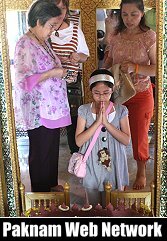How to Market an Event on Social Media for News Organizations?
When you’re looking to market an event on social media for a news organization, it's crucial to start with a solid understanding of your audience. Knowing who they are and where they engage will shape your entire strategy. You’ll also want to create a memorable event hashtag that sparks conversation. But there's more to consider—many elements intertwine to elevate your event's reach and impact. Let's explore what those are.
Understand Your Audience and Choose the Right Platforms
To effectively market an event on social media, it's essential to begin by understanding the target audience and selecting the appropriate platforms. Conducting demographic research allows for the identification of the audience's interests and preferences.
Analyzing previous engagement metrics can indicate which platforms have been most effective; for instance, TikTok is generally more suited for younger demographics, while LinkedIn is often utilized for B2B professionals.
Creating audience segments based on criteria such as age and geographic location can help tailor messaging to specific groups.
Utilizing social listening tools can provide insights into relevant conversations happening on social media, ensuring that content aligns with audience expectations and preferences.
Create a Compelling Event Hashtag
Creating an effective event hashtag is important for enhancing an event's visibility and engagement on social media platforms. A successful hashtag should be unique, memorable, and easy to spell to ensure that it's easily recognizable and can be shared widely.
Incorporating the event's name or theme into the hashtag can further enhance brand recognition and improve discoverability on social media. It's advisable to promote the hashtag consistently across all marketing materials, including social media posts, promotional flyers, and other event communications. This consistency helps to reinforce the hashtag’s presence in the minds of potential attendees.
Encouraging attendees to use the hashtag when sharing their experiences can foster a sense of community and generate user-generated content, which can be beneficial for broader event promotion.
Additionally, utilizing hashtag analytics tools can provide valuable insights into engagement levels and overall effectiveness. Monitoring these metrics allows for adjustments to be made in real-time to optimize the hashtag's performance throughout the event.
Collaborate With Influencers and Key Stakeholders
Collaborating with influencers and key stakeholders can significantly enhance the reach and effectiveness of an event. By partnering with influencers who resonate with your target audience, you can facilitate engagement and generate interest.
Research suggests that micro-influencers, due to their smaller but more engaged followings, often achieve higher interaction rates compared to larger influencers. This can be beneficial in maximizing the impact of promotional efforts.
When engaging in these collaborations, it's important to establish clear objectives that guide the partnership, such as increasing event registrations or boosting social media impressions.
Furthermore, involving key stakeholders, including prominent speakers or industry leaders, in your promotional activities can add to the credibility of your event. Their endorsement can enhance the perceived value of the event and encourage deeper engagement from the audience, which can contribute to a more successful overall experience.
Therefore, careful selection of collaborators, grounded in an understanding of your audience and objectives, can lead to a more effective promotional strategy.
Maintain Consistent Branding and Posting Schedule
When developing a social media strategy for an event, it's important to maintain consistent branding and adhere to a regular posting schedule. Ensuring that uniform colors, logos, and messaging are used across all social media platforms can significantly enhance brand recognition among the audience.
A structured posting schedule is essential for sustaining audience engagement without causing content fatigue. It's advisable to regularly audit social media accounts to incorporate the most current event details. In addition, a balanced mix of promotional content and engaging updates can effectively maintain audience interest.
Utilizing content calendars can assist in strategic planning, allowing for alignment of messages with key milestones leading up to the event. This approach is likely to enhance visibility and ensure that the communication remains relevant and timely.
Engage and Analyze Post-Event Feedback
Engaging with attendees after an event is essential for assessing their experiences and identifying areas for improvement. Gathering post-event feedback can be accomplished through structured surveys and monitoring social media responses to evaluate attendee satisfaction levels.
Analyzing social media metrics, such as the number of likes, shares, and comments, can provide insights into overall audience engagement with the event.
Encouraging attendees to utilize a specific hashtag for their feedback can facilitate the generation of user-generated content, which not only increases community interaction but also helps event organizers gather diverse perspectives on the event experience.
Subsequently, consistent follow-up communication is important for maintaining attendee relationships. This can include sharing highlights from the event and expressing gratitude to participants, thereby reinforcing their connection to the event.
The feedback collected should be systematically analyzed to inform content refinement and adjustments in event planning strategies.
Conclusion
In conclusion, marketing your event on social media for news organizations requires a focused approach. By understanding your audience, using the right platforms, and creating a catchy hashtag, you’ll boost visibility and engagement. Collaborating with influencers adds credibility, while consistent branding and a regular posting schedule keep your audience connected. Finally, don’t forget to analyze feedback after the event to refine your strategies. With these steps, you’ll make your event a memorable success!

















